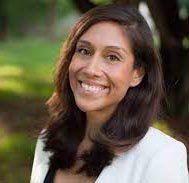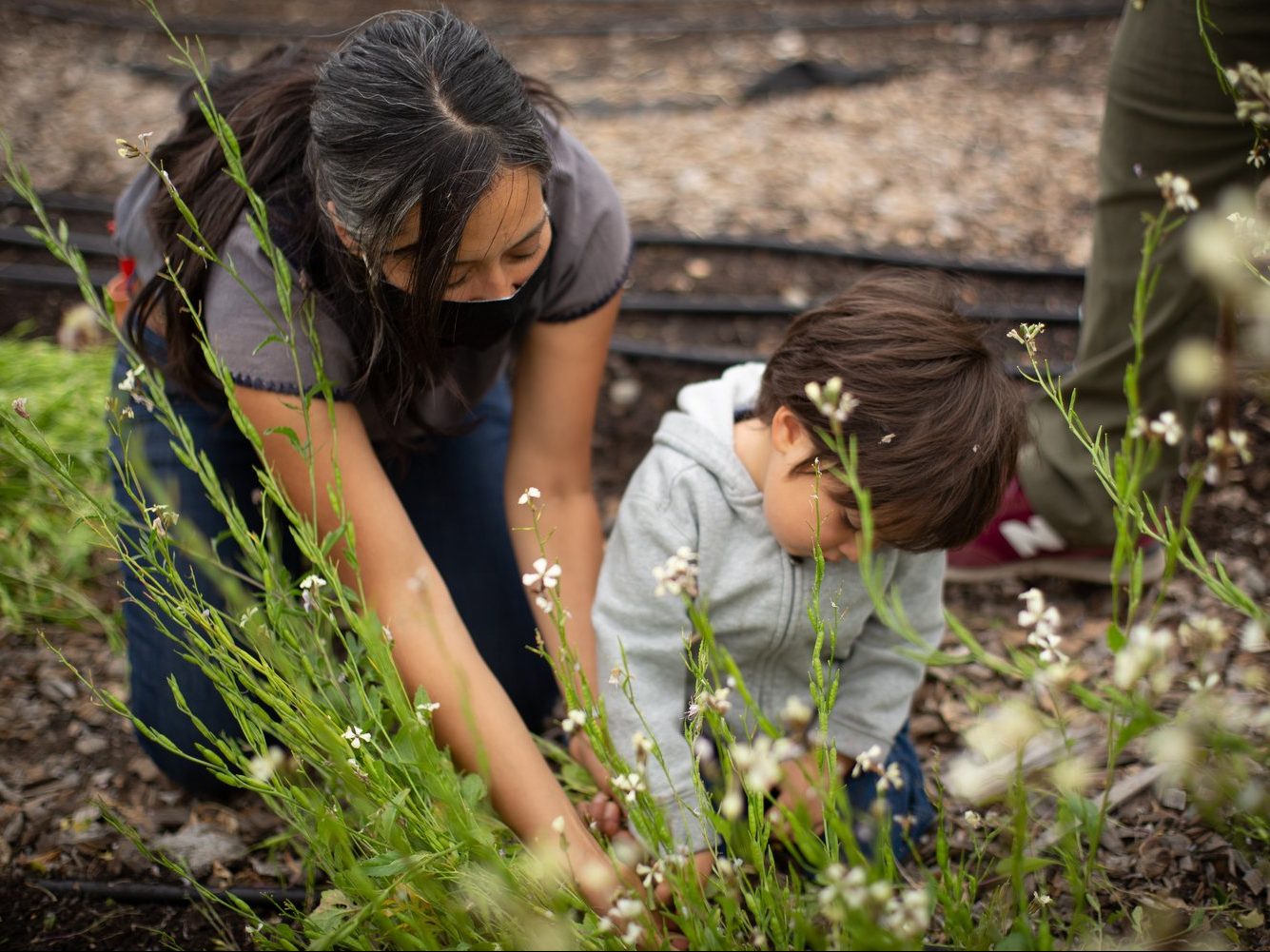Whenever I get the opportunity to introduce myself, I make sure to say “my name is Analucía Lopezrevoredo and I am a proud Peruvian-Chilean, American, Jewtina.” It is important that I pronounce my name correctly in Spanish, and that I introduce Latin and Jewish culture as complementary in my life. Feeling empowered by my multicultural identity has become fundamental to my narrative, but the road to get here was long, incredibly lonely and exhausting.
Like many Latino/x children growing up in the United States, I just wanted to fit in with the rest of my peers. Though I was taught by my parents at an early age to be proud of being both Peruvian and Chilean, fluent in Spanish and English, part of an interfaith family and much more, I didn’t always feel it. I remember being ashamed of being an immigrant, having to always translate for my parents, and having a name that no one could pronounce. Analoosh-a? Analoo-chia? Ana… can I just call you Anna? Lopez what? How is this Jewish? Oh I can’t possibly say this last name. Lopez… Lopez… Lopez-whatever, you know who you are. These sort of demeaning questions and comments were things I encountered almost daily as a young child and teenager. People butchering my name eventually became my greatest fear, and at seven years old I uttered for the first time: “You can call me Ana (pronounced like Anna).”
Unfortunately, this experience is quite common for immigrants and people of color who time and time again are made to feel as if their culture is deficient and inferior if it deviates from what the dominant culture regards as worthy. For Latino/xs in America, this treatment of inferiority dates back to the early days of colonization, when those in power implemented policies that systemically erased indigenous and black culture, regulated migration and rewarded assimilation. Changing my name was the first conscious thing I did to assimilate, but it wasn’t my last. Fearing that I wouldn’t be understood, loved or accepted, I struggled to identify with my multifaceted identity throughout my childhood, teenage years and early adulthood. “It’s not that I’m ashamed of being Latina,” I would say. “it’s just that I don’t need to be so loud about it.”
It wasn’t until I was a 19 year old sophomore in college that a professor of mine insisted on calling me by full name. “Analucía–it’s beautiful,” she exclaimed on the first day of class. And in that moment, after 14 years of living in the United States, someone outside of my family gave me the affirmation I so desperately needed and desired. Feeling seen by her, led me to realize how imperative it was to my identity development to be honored not for my ability to dilute myself and melt into a pot, but for my ability to uniquely contribute to the fabric of American society. Slowly I started to reincorporate the use of my full first name in all social settings. It didn’t happen overnight, and the last place I introduced it to was the Jewish community.
Something about being from an interfaith family always led to an internal struggle with my Jewish identity. As a child and teenager, I didn’t like mentioning that my father wasn’t Jewish, and when discussing my Latino/x heritage, I’d focus on detailing my family’s Jewish-European migration to the New World. In order to be Latina in Jewish spaces, I thought, I needed to make it palpable and easy to digest. Anything other than that would lead to a trial in which I was the only witness being cross-examined to qualify my place in the community. You’re Latina and Jewish? How can a Jew speak Spanish? There are Jews in Perú? Fortunately, the experience with my college professor led to years of unpacking how internalized oppression had manipulated my ability to be in Jewish spaces. I realized that the shame my younger self had experienced was not only a misguided attempt to belong, but also a result of systemic racism and xenophobia. This realization led to a period of change in which I committed to show up as my full authentic self in all spaces of my life that I claimed to love, including the Jewish community. “I’m going by my full name now: Analucía,” I started to tell my friends. “My expectation isn’t that you pronounce it perfectly, it’s that you honor me by trying.”
Jewtina y Co. was born, and with it was an organization that exclusively dedicated itself to celebrating Latin-Jewish culture, nurturing Latin-Jewish identity, and raising awareness of Latin-Jewish multiculturalism.
In 2019, after five years of working in the Jewish communal profession and completing my doctoral studies, I realized I wanted to take my passion for fighting for equity within the Latino/x and Jewish American communities to the next level. Within months, Jewtina y Co. was born, and with it was an organization that exclusively dedicated itself to celebrating Latin-Jewish culture, nurturing Latin-Jewish identity, and raising awareness of Latin-Jewish multiculturalism. Launching this organization was incredibly personal. It was what I wanted and desired as a young adult, and what I so desperately needed as a young child aching for representation in Jewish spaces. Today, Jewtina y Co. represents an opportunity for anyone who identifies as both Latino/x and Jewish to see themselves in Jewish leadership and to be in community with others who identify as such. Whether both your parents are Jewish, or you come from a multi-faith and multicultural background, or you were born in Latin America and adopted by white Jewish parents, or whether you have chosen Judaism in your life, if being Latino/x and Jewish is important to you, then you are a part of our Familia Jewtina and we want be in community with you.
Through the generations, the indigenous people of the Andes have lived in a society that relies on every member to honor and see the other. This feeling of mutual responsibility, known as ayni in Quechua (and areyvut in Hebrew), greatly informs the work of Jewtina y Co. As an organization proudly grounded in a multifaceted identity, we live by the idea of honoring each other’s diversity and remembering that our diverse cultures are complementary—not contradictory—of one another. We also recognize that the experience of all Latin-Jews has not been the same. Some benefit from being white functioning, others experience anti-black and anti-indigenous racism on a daily basis. Some benefit from having legal status in the United States, others are worried of being separated from their families. Some have class privilege, others are working three under-the-table jobs to make ends meet. Some speak Spanish and Portuguese, others wonder if their missed opportunity to learn their grandparents’ language disqualifies them from being accepted as Latino/x. With this understanding of inequity, we are even more committed to creating opportunities for members of our community to examine their intersectionality, acknowledge their resiliency, actively interrupt oppression within our community, and grow as whole, empowered human beings that are essential to the story of both Latino/x and Jewish peoplehood and leadership.
_____________
To learn more about Jewtina y Co., please visit us at jewtina.org and follow us via instagram at @jewtinayco.
_____________







